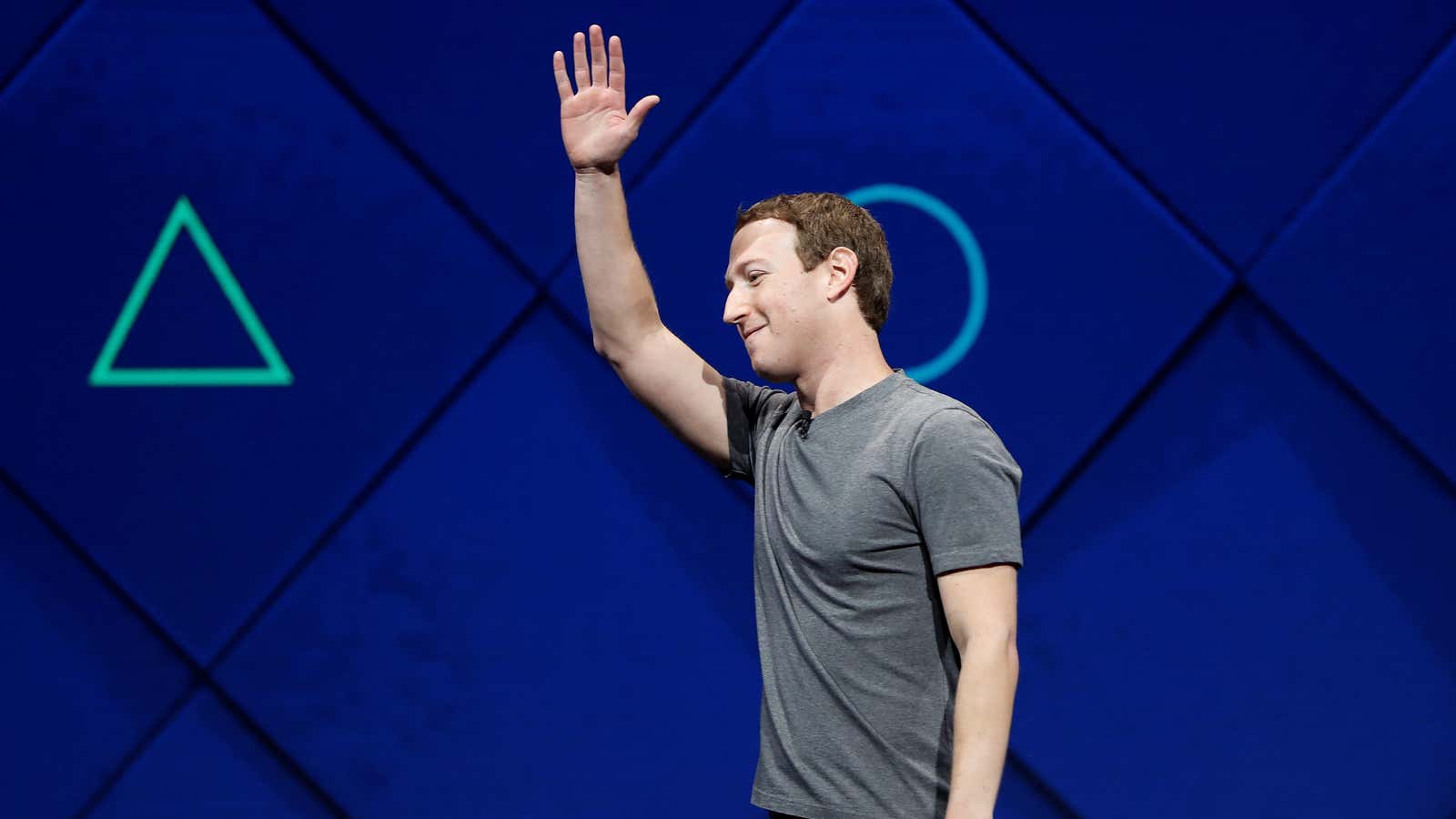Mark Zuckerberg is $11 billion poorer than he was around this time last month.
In the wake of the Cambridge Analytica scandal (paywall), the Facebook founder and CEO has plenty of things to worry about besides his personal net worth. But the dip reflects a broader turn in Facebook’s fortunes.
Zuckerberg’s net worth still stands at a heady $64 billion, according to the Bloomberg Billionaires Index, which is pretty good going for a guy who launched his business from a Harvard dorm room in 2004. Facebook’s market capitalization is currently more than $460 billion. Zuckerberg owns a 14% stake in the company, although special classes of shares give him around 60% of the voting rights. (He takes home a symbolic $1 salary every year.)
“Zuck” begins two days of congressional testimony today (April 10), and is sure to be grilled by American lawmakers about a number of issues involving his social networking behemoth. These include the Trump-linked consultancy Cambridge Analytica’s harvesting of personal data from Facebook without users’ permission, Russia’s meddling in foreign elections via Facebook, and the spread of fake news on Facebook.
Since the Cambridge Analytica scandal broke, Facebook’s shares have lost around 15% of their value, amid a general decline in tech valuations. The downturn has put a sizable dent in the sizable fortunes of many of the billionaire founders and CEOs at tech firms.
In December 2015, Zuckerberg pledged to give away 99% of his shares to the Chan Zuckerberg Initiative, a philanthropic venture the Facebook founder runs with his wife, Priscilla Chan. More recently, in September, Zuckerberg said that he would sell between 35 million to 75 million of his shares over the coming 18 months (worth about $6 billion to $13 billion at the time) to finance the initiative.
Facebook’s recent troubles mean that the shares he sells in the near future will be worth less than they once were. In the long term, however, the initiative will still have plenty of money to follow through on its pledge to “advance human potential and promote equal opportunity.”
